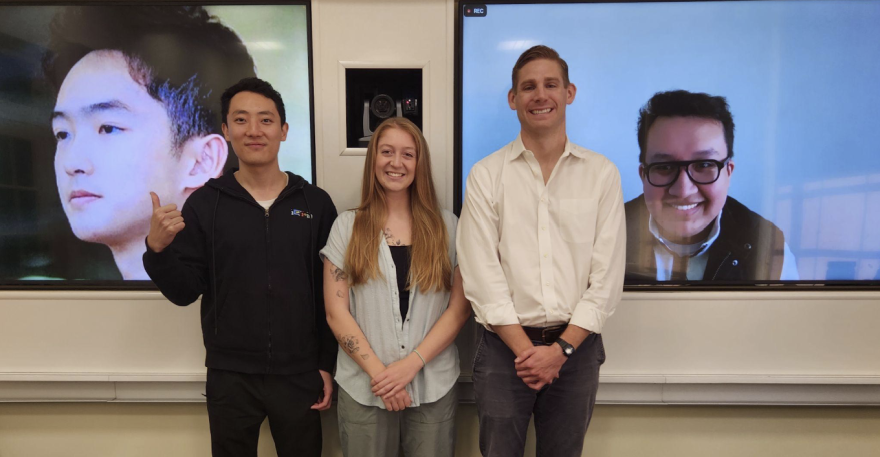A Carnegie Mellon University class supported by the Department of Defense puts students at the forefront of streamlining government bureaucracy. The Lean Innovation Lab is taught by David Riel, a distinguished service professor at the Heinz College of Information Systems and Public Policy. Now in its fourth year at CMU, the course is based on a nationwide academic program called “Hacking for Defense”.
The class of 30 students was recently visited by Jeff Decker, managing director of the Hacking for Defense program at Stanford University. Decker recently published a book titled “The Hacking for Defense Manual”, which serves as a playbook for students. The course originated at Stanford in 2016 and has spread to more than 70 universities around the world, including at least 45 in the United States.
In addition to being offered every semester at CMU, regular collaboration occurs with the University of Pittsburgh, where the course is taught in spring semesters.
Students are divided into groups of four to seven and contacted by a Department of Defense sponsor to solve an organizational problem. While the DoD sponsor may ask for a specific product, such as more energy-dense batteries to support fighter pilots, the role of students is to think beyond the initial ask. They conduct more than 100 interviews with staff, including active service members and military leadership, to ascertain and analyze potentially overlooked needs.
“These students are truly solving a real-world problem. They're constantly dealing with variables, they're constantly dealing with chaos, and they need to find their way through it.” Decker said.
The course also gives students more inclined towards private sector opportunities following graduation a chance to innovate within the public sector.
“Most of them probably aren't really thinking about going to work on the government side. They're definitely thinking about their job at Google or Microsoft or Amazon. I always say that the most important part of this class is that they become strong innovators, and they can take this with them and apply it to whatever they do in the future,” Riel said.
In Spring 2024, Riel said his class was handed one of the most tantalizing assignments yet: Partnering with officials from the United States Marine Corps to investigate creating an apparatus to debunk misinformation in real time. The concept was intended for diplomatic use during encounters between U.S. forces and foreign nations. Initially proposed as head gear to detect oxygen saturation levels, it proved too theoretical for students to implement. The team devised an alternative using machine learning to link audio from diplomatic counterparts to a database of information in real time — an instant fact-checker.
While the technology could have immense applications to domestic politics and other areas of American life, Riel stressed the Lean Innovation Lab to deliver the narrowest possible solution for clients.
“Thinking of the Swiss army knife, maybe only one person out of the bunch needs that toothpick that's in there,” Riel said.

